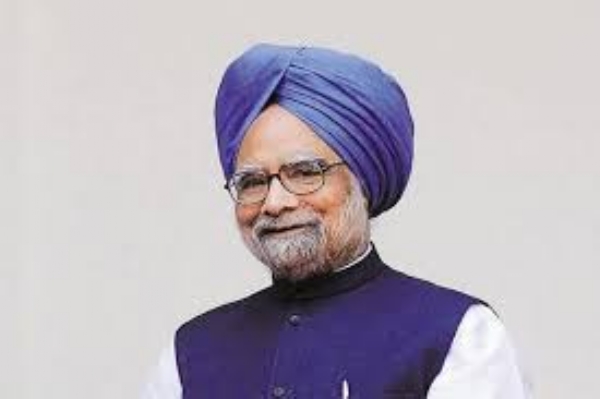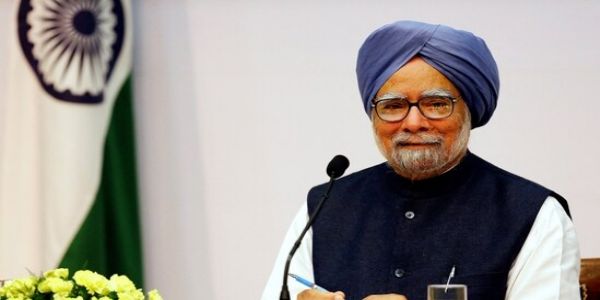
New Delhi, 26 December (HS): Former Prime Minister Dr. Manmohan Singh died on Thursday night. He was 92 years old. He breathed his last at 9.51 pm in AIIMS. Delhi's All India Medical Institute (AIIMS) administration has confirmed his death.
Dr. Manmohan Singh was born on 26 September 1932 in Gah, Pakistan. His family came to India after the partition in 1947. Manmohan Singh studied economics at Punjab University. After this, he took a D. Phil. degree from Oxford University. Dr. Singh's family includes his wife Gursharan Kaur and three daughters Upinder Singh, Daman Singh and Amrit Singh.
Manmohan Singh's book 'India's Export Trends and Prospects for Self-Sustained Growth' is considered to be the first and accurate criticism of India's inward-looking trade policy. Dr. Singh also earned a lot of fame as a professor of economics. He was a professor at Punjab University and later at the prestigious Delhi School of Economics. Meanwhile, he was also an advisor in the United Nations Conference on Trade and Development Secretariat and was also the Secretary in the South Commission in Geneva in 1978 and 1990. In 1971, Dr. Singh was appointed as an economic advisor in the Ministry of Commerce and Industry of India. Soon after this, in 1972, he was made the Chief Economic Advisor in the Ministry of Finance. In the years that followed, he was also the Deputy Chairman of the Planning Commission, Governor of the Reserve Bank, Economic Advisor to the Prime Minister and Chairman of the University Grants Commission. The most important turning point in India's economic history in recent years came when Dr. Singh was the Finance Minister of India from 1991 to 1996. He is considered the pioneer of India's economic reforms.
Manmohan Singh's political journeyManmohan Singh's political journey began in the 1990s, when he became the Finance Minister in the government of then Prime Minister Narasimha Rao. During this time, he played an important role in liberalizing the Indian economy. He implemented such reforms which encouraged private enterprise. He played an important role in reducing the severe economic crisis faced by the country in the year 1991. It is believed that his policies strengthened his reputation. After his tenure as Finance Minister, he was the Leader of the Opposition in the Rajya Sabha before returning to power as Prime Minister. As Finance Minister, he gave the gift of a new economic policy to the country struggling with economic crisis.
Dr Singh's tenure as Prime Minister
Dr Manmohan Singh was the Prime Minister of India from 2004 to 2014. He held this post for the fourth longest time after former Prime Ministers Jawaharlal Nehru, Indira Gandhi and PM Narendra Modi. Dr Manmohan Singh was the first Sikh Prime Minister of India. He was also the first Prime Minister to be re-elected after completing a full five-year term after Jawaharlal Nehru. When Manmohan Singh became the Prime Minister of the country in the year 2004, he led a government focused on socio-economic development. Under his leadership, the country's GDP averaged 8 to 9 percent. Although, during his tenure, the government was accused of various scams, but Manmohan Singh has always remained clean personally.
Awards and Honors:
Among the many awards and honors received by Dr. Manmohan Singh, the most prominent is India's second highest civilian award Padma Vibhushan, which he received in the year 1987. Apart from this, Jawaharlal Nehru Birth Centenary Award of Indian Science Congress (1995), Asia Money Award for Finance Minister of the Year (1993 and 1994), Euro Money Award for Finance Minister of the Year (1993), Adam Smith Prize of Cambridge University (1956), Wright Prize for Distinguished Performance at St. John's of Cambridge (1955). Manmohan Singh has been awarded honorary degrees by Japanese Nihon Keizai Shimbun and many other universities.
Hindusthan Samachar / Indrani Sarkar






